Local News
Winnipeggers set to participate in upcoming Maccabiah Games
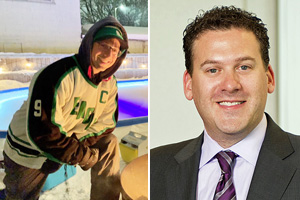
By MYRON LOVE After a year’s delay due to the ongoing Covid situation, the 21st Maccabiah Games are back on track. The Maccabiah, aka “The Jewish Olympics”, is the world’s largest Jewish athletic competition.
The (usually) quarterly event highlights the centrality of the State of Israel in the life of the Jewish people. The games, which were first held in 1932 and 1935 in what was then Palestine and – resumed in 1950 after Israeli independence, is organized by Maccabi World Union. The most recent competition in 2017 featured 10,000 athletes representing 80 countries, making it the third largest event in the world, behind only the Summer Olympics and the World University Games.
Maccabi Canada sent a delegation of 600, one of the largest delegations from any Diaspora country. Canadian athletes won 72 medals at the Games, including 15 Golds.
Now, my impression of the Maccabiah Games has been that it is a regular sporting event geared to Jewish young people – much like the Olympics. I have been wrong, however. The Games, reports Sam Lazareck, has a Masters category – for amateur athletes over 40 – and Winnipeggers Lazareck and his close friend Michael Stoller are looking forward to participating in this summer’s Maccabiah – scheduled for July 12-26 with opening ceremonies scheduled to take place, as usual, at Teddy Kollek Stadium in Jerusalem. Lazareck and Stoller will be members of the Canadian Men’s hockey team, in the Masters category.
Both Lazareck, a psychiatrist, and Stoller, a portfolio manager (StollerWealth), have been playing hockey for years. For Stoller though, his first sport as a competitor was racquetball. It was racquetball in which he competed as a junior (under 18) on the Manitoba men’s team at the Canada Winter Games in Prince Edward Island in 1991.
Lazareck started playing hockey as a 10-year-old. He was on the St. John-Ravenscourt team in high school, played at university and has been part of various men’s leagues around the city. Lazareck also coaches his hockey-playing sons, Dylan, 12, and Ben, 10, at SJR. His daughter, Julia, 14, is a synchronized swimmer.
Stoller coached his younger daughter, Madelyn, who is now 13, at SJR when she was younger in hockey there. This past season (2021-2022), she played for the U15 AA female Rangers. (He notes that his older daughter, 16-year-old Reina, takes dancing classes at the Shelley Shearer School of Dance.)
Both Stoller and Lazareck play forward.
“I love the speed of the game,” Lazareck says. “It is exhilarating. And there is a lot of opportunity for creativity and improvisation.”
It was Lazareck who first saw the Facebook posting calling for prospective players for the Canadian Men’s Maccabiah Masters hockey team. He later recruited long time friend Stoller to try out with him.
“We had to fly out to Toronto last July for the tryouts,” Lazareck reports. “Our team practices have all been in either Toronto, Montreal or Ottawa. All the other players are from Toronto, Ottawa and Montreal.
”The practices – all optional – have been fun.”
“Israel is an amazing place” says Stoller, whose wife Miriam hopes that she will be able to join him in Israel. (Their daughters, he notes, will be at BB Camp in July.)
For Sam Lazareck, this will he his second time in Israel in three years. In 2019, he says, he and his wife, Chloe, joined his parents (Karyn and Mel), Sam’s siblings, and all their children for a multi-generational family visit.
“I didn’t expect to be back this soon,” observes Sam, who will be accompanied by Chloe and younger son Ben. (The other kids will be at camp.)
Prior to the Maccabiah Games, Lazareck notes, he is involved in putting together a fundraising hockey tournament. “The Goals for G.R.O.W. Tournament” – scheduled for June 4 at the Iceplex – aims at raising money for the G.R.O.W. in Winnipeg Program – which was founded by his mother Karyn 20 years ago, (originally under the auspices of the Rady JCC).
The program provides the opportunity for mentally and physically challenged individuals to learn and practice life skills and social skills in a safe environment. The transitional day program for young adults (21 and older) prepares them for independent living – with the focus on life management and healthy living – and the development of social, recreational and pre-vocational skills.
The Goals for G.R.O.W. tournament was last held in 2019.
(Readers who may want to participate in the upcoming tournament or make a contribution can email info@growourway.ca or phone 204 505-3799.)
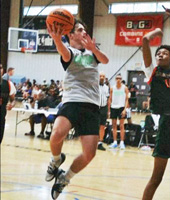
For Israeli-born teenager Ariel Tsaiger, representing Canada at the Maccabiah Games will be a homecoming of sorts
Tsaiger says he is really looking forward to being a participant in this summer’s Games. “I have some friends who have gone to the Maccabiah before and they really loved it,” says the Israeli-born junior basketball player, whose parents, Dmitri and Lana, moved to Winnipeg when he was three.
The rising local star has been playing basketball since he was five. The 15-year-old Henry J. Izzat High School student plays point guard for the Manitoba-based Northstar Preparatory Institute (NPI) team, which competes in tournaments and circuits around North America. He is also a participant in Triumph, Winnipeg’s premier youth basketball program.
“What I like most about basketball,” he says, “is that, unlike most other sports, you can’t afford to lose focus. You have to be fully engaged at all times.”
In addition to participating in this sumemr’s Maccabiah, Tsaiger is also looking forward to seeing some of the many relatives he still has in Israel.
His dream , he says, is to be able to play college basketball – hopefully on a full scholarshop.
Local News
Cheryl Hirsch Katz, Jewish Child and Family Service’s longest serving staffer, set to retire at end of the month
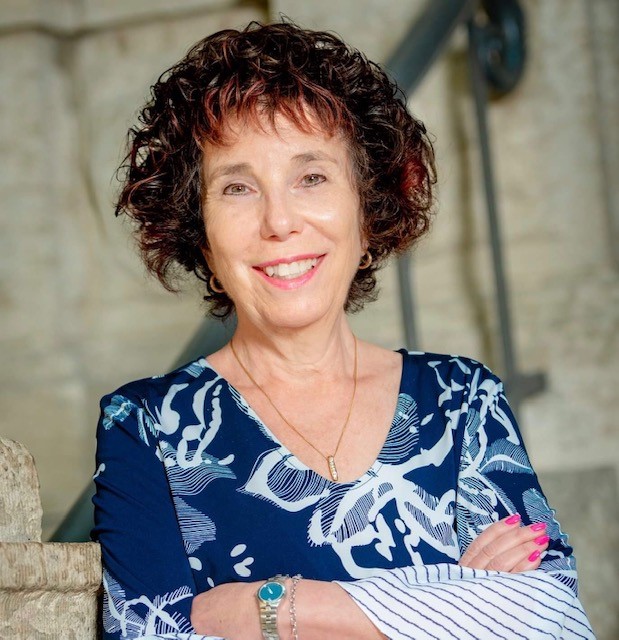
By MYRON LOVE “I loved working at Jewish Child and Family Service,” says Cheryl Hirsh Katz, who is due to retire at the end of June. “I have always appreciated the warm and welcoming atmosphere here. I feel that the people working here are my extended family. I am going to miss my colleagues”.
“I have derived great satisfaction over the years to have been able to help many people in our community of all ages through my work at JCFS,” she continues.
After 44 years at the agency, Katz, the longest-serving member of the staff, was given an appreciative send-off at the JCFS’s recent (June 23) Annual General Meeting at the Shaarey Zedek Synagogue.
The daughter of Art and Bess Hirsh, Cheryl grew up in Garden City. She attended Peretz School, then Jefferson Junior High and Garden City Collegiate. She joined the staff of JCFS in 1981, shortly after receiving her Bachelor of Social Work degree.
She earned an MSW in 1990.
“I chose to become a social worker,” she recalls, “because I always wanted to be able to help people.”
Katz was originally hired by JCFS to work with newcomers. After a couple of years, she was given responsibility for looking after the needs of older adults.
“I really enjoyed working in older adult services,” she says. “That is where I spent the bulk of my time at JCFS.”
After ten years as a case worker, she was promoted to a supervisory role. Later, she was also given responsibility for mental health and addictions programming and settlement services, while keeping the older adult files under her purview.
“As a supervisor, I wasn’t directly involved with individual clients,” she points out. “I was more involved with programming. Among the programs for seniors we organized were – for example – sessions on elder abuse, digital storytelling and memory loss.”
She notes that one of the trends she has seen over the last 44 years is that people are living longer and living in their homes longer. A lot more of our clients are living well into their 90s,” she observes. “We have had to continually expand our staff and the services we provide in order to accommodate the growing demands of an aging population.”
She also spoke of the mental health needs of seniors and aging Holocaust survivors.
She says that she has mixed feelings about leaving JCFS. “After so many years working full time, I am going to have to create a new routine,” she comments.
She notes that, now that she is retired, she will have more time to spend with her parents – who are in their 90s.
And then, there are the two dogs to look after. “I will have time now to try new activities,” she says. “ I might learn to play mah-jong.”
She speaks about maybe doing some traveling – although her husband, Murray, is still working full time.
(She and Murray have one daughter, Farah.)
“Retirement may also include some volunteering,” she adds.
It is quite likely, she will be continuing her association with JCFS but in a volunteer capacity.
Local News
Gray Academy students shine in provincial, national debating competitions
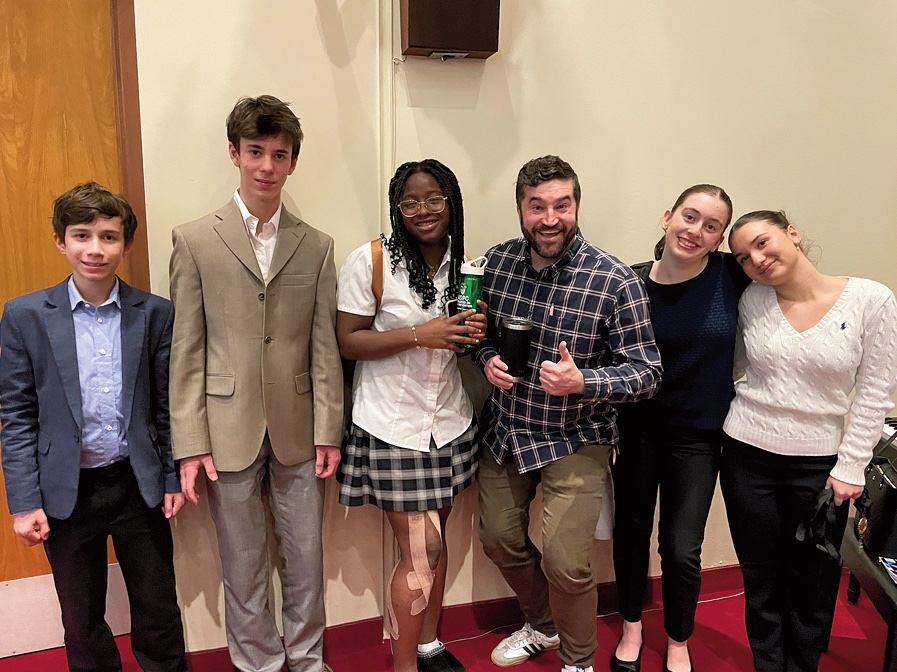
By MYRON LOVE It has been another good year for Gray Academy’s high school students who participated in provincial and national debating competitions. The best results were recorded by Grade 9 student Noa Mednikov, who finished fourth overall nationally, fourth in interpretive reading, and fifth in persuasive speaking at the junior National Public Speaking Championship in early May in Vancouver.
Last October, in the Junior Provincial British Parliamentary Championship – which was held at St. John’s-Ravenscourt – Noa and her partner, Raya Braunstein, finished third as a team while Raya placed third in individual debating.
Their fellow Grade 9 student Maxim Moscalenkov tied for first in persuasive speaking in Vancouver, while the Gray Academy team of Gabe Tapper and Aaron Koplovich finished fifth. Aaron also finished fifth in his individual debate.
Earlier, in March, Maxim finished fifth in the Provincial Juniors debating competition, which was held at Balmoral Hall He and his debate partner, Nate Shenkarow, finished seventh among the teams entered. Last November, he and partner, Ethan Tenenbein, finished seventh in the Junior Prepared Tournament – just behind the Gray Academy team of Nate Shenkarow and Jack Kay.
At the senior high level in that competition, the team of Jacob Tenenbein and Jonah Novoseller finished fourth and Jacob was recognized as fifth best in an individual capacity. Jonah and Jacob also paired up to win the Asper Cup, which was held at their home school.
Jacob represented Manitoba at the Junior National Speech Championship in Vancouver in May and, last October, he and Grade 12 Gray Academy students Julie Krozkin and Daniel Bokser represented Canada at an international debating tournament in Bermuda.
Gray Academy’s debating program was introduced by Linda Martin in 2003. She also led the debating teams at Balmoral Hall. In 2011, Martin was succeeded by Gray Academy high school English teacher Andrew Kaplan.
“Andrew has done a wonderful job with the debating program” says Martin, who has a debating trophy at Gray Academy named in her honour, as well as a provincial trophy for best individual junior debater. “Over the years, Gray Academy students have done very well in many local, national and international competitions,” she adds.
About three weeks ago, this writer had the opportunity to sit down with Andrew Kaplan and six of the school’s top debaters while they discussed the benefits of learning how to debate. According to Noah Strauss – who competed in the Junior Provincials at Balmoral Hall in March, public speaking leaves him with a feeling of accomplishment.
“It’s a good skill set to have,” he observes. “It builds confidence.”
“A benefit of being able to debate is that you learn how to convince people that you know what you are talking about,” adds Maxim Moscolenkov.
Raya Braunstein notes that being able to debate is a skill that she expects to be helpful in many university courses which she may choose to take.
As Andrew Kaplan notes, the ability to express yourself has a great impact in whatever career you choose to pursue.
He points out that debating is compulsory at Gray Academy for all Grade 7 and 8 students – and students can continue debating as an option in the higher grades
Of course, competitive debating is not for everyone. For those students who opt to take that path, the journey begins with internal school debate competition – with the top debating teams and individuals qualifying for local tournaments and – potentially – beyond.
Andrew Kaplan reports that a small number of high schools in Winnipeg and southern Manitoba have active debating programs – including St. Johns Ravenscourt, St. Paul’s High School, St. Mary’s Academy, Garden City and Maples Collegiates in the Seven Oaks School Division, St. Maurice (a Catholic School), as well as Morden Collegiate and Dasmesh, a Sikh private school.
Kaplan expresses his appreciation to the Asper Foundation and an endowment spearheaded by the Kives Family for providing funding for the Gray Academy debating program – as well as the Andrew Slough Foundation – which was established by his friends in memory of the outstanding former Ravenscourt student debater and lawyer who passed away suddenly two years ago at the still young age of 38.
I am confident that our Jewish community can look forward to the continued success of Gray Academy’s star debaters and to the continual emergence of future stars as the times goes by.
Local News
Antisemitism has crept into grade school in Canada
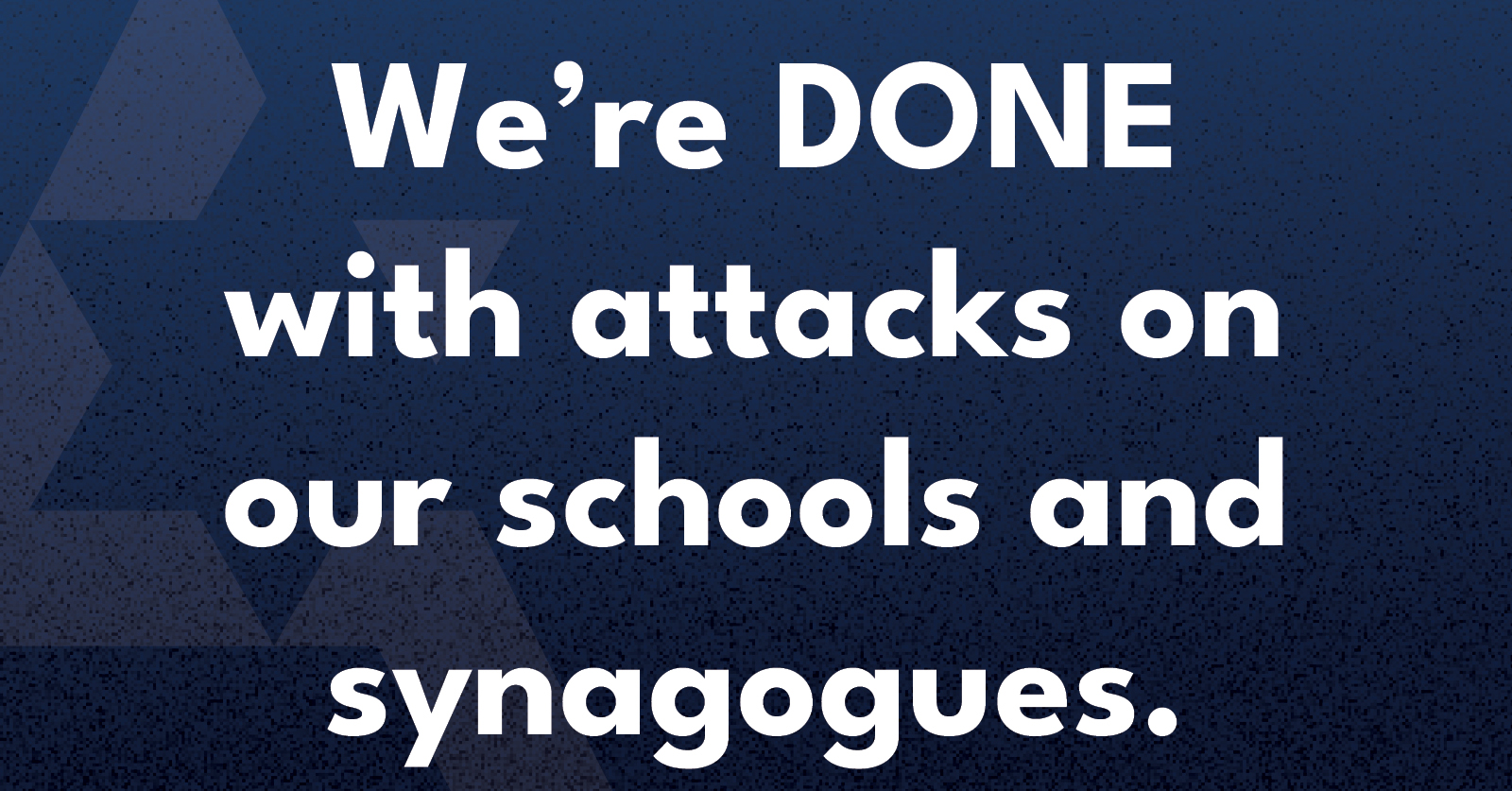
Antisemitism in Canada has moved beyond protests and politics; it is now entering classrooms and altering how Jewish children see themselves functioning within them.
A a university student I have observed the experience of my younger brother in grade eight as a Jewish student. Over the past few months, his school has been at the center of several deeply troubling incidents that have made him feel unsafe in our parks, community, and even his school. Swastikas were drawn around the community, in parks and ponds. Additionally, an older man, who claims to be a pro-Palestinian influencer, stood outside his predominantly Jewish school wearing a keffiyeh, filming a video which then circulated between students on TikTok.
This same man later showed up to our local Jewish community center in keffiyeh to allegedly watch his son play basketball where my brother and many of his classmates go for their lessons, basketball games, and Jewish events. These moments made him and his peers feel watched and targeted just for being Jewish. Local political representatives condemned the incidents and raised awareness about antisemitism, but the fear among students didn’t go away. The feeling of being targeted for simply existing has been taught to my brother, something my parents had tried their hardest to escape from.
Most recently, my brother was chosen to represent his school at a regional science fair. When one of the judges arrived wearing a keffiyeh, he froze. For many, including my brother after the incidents he has faced, the keffiyeh represents a political message. But even more so for my younger brother, it is tied to the fear and intimidation he had already experienced. He felt nervous, distracted, and unsure of how to act.
This is not about silencing political expression. It is about a child who came to share his ideas and left feeling uncertain and afraid. It is about the atmosphere forming in Canadian schools, where Jewish students are being made to feel targeted and unwelcome.
His school made an effort to address the incidents, but the impact is lasting. Posts on social media, much can be very vague at times about inclusion cannot fully undo the feeling of being singled out. A kind word from a teacher does not erase the fear that builds when threats are left unspoken but deeply felt.
I am writing this as a sister who watched her younger brother lose a moment that should have been filled with confidence and pride. He deserved to feel safe. So do all Jewish students in this country.
Moving forward, schools must take concrete steps to protect all students. Antisemitism cannot only be addressed when it becomes violent or overt. It must also be recognized when it appears as intimidation, symbolic targeting, or political messaging that creates fear among students. Children should never have to question whether they are safe in their own classrooms or community spaces.
Events that are meant to support and celebrate students must remain focused on them. Individuals who feel the need to bring political symbols or messages into school grounds or children’s events should not be welcomed in those spaces. Schools must make it clear that their environments exist to support learning, safety, and inclusion, not to host agendas that can intimidate or isolate students.
Administrators and educators must develop clear guidelines for identifying and responding to antisemitic behavior in all its forms. This includes strengthening security measures, offering ongoing staff training, and engaging directly with Jewish families to understand their concerns. Inclusion is not a one-time statement. It is a responsibility that must be reflected in everyday decisions and actions. No child should ever feel unsafe or unwelcome because of their identity.
The author is a Campus Media Fellow with HonestReporting Canada and Allied Voices for Israel who lives in Toronto.
